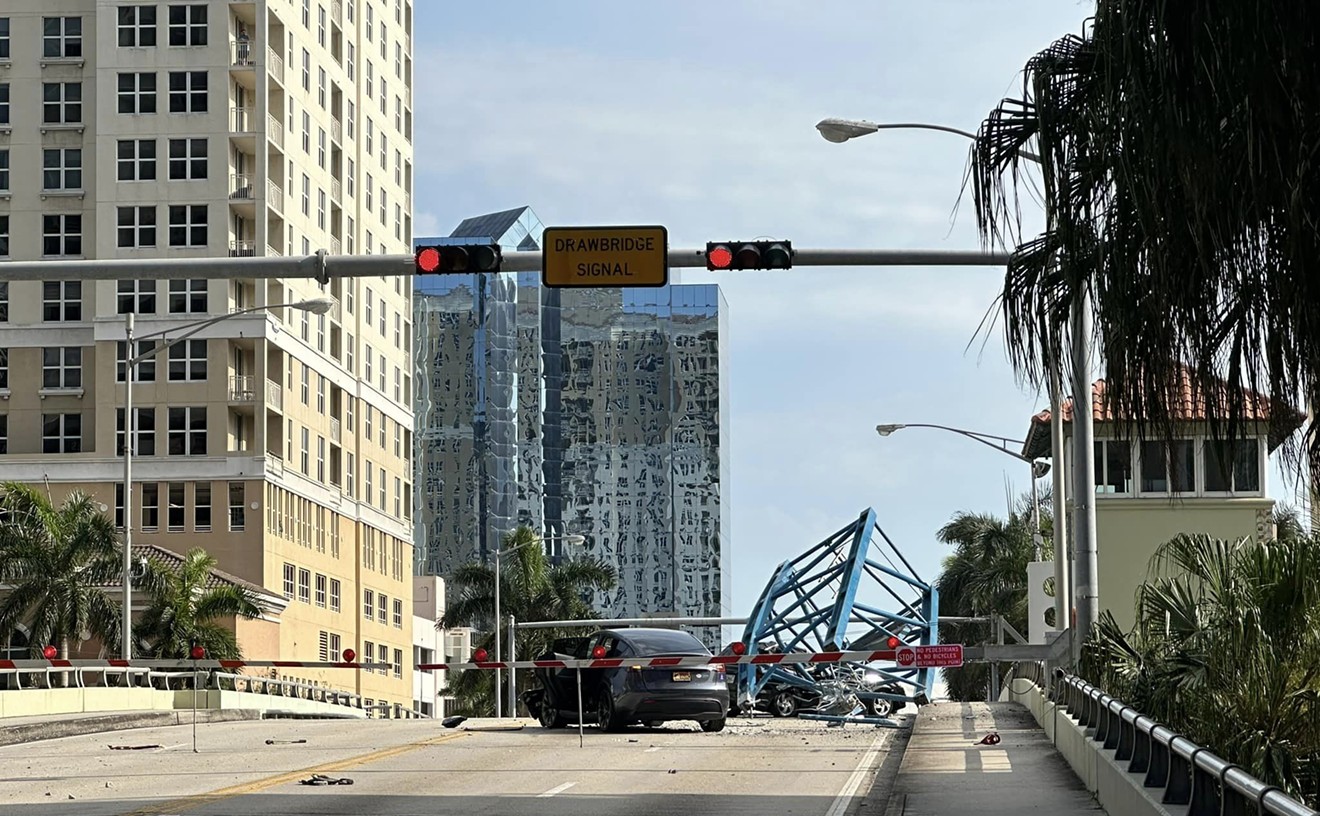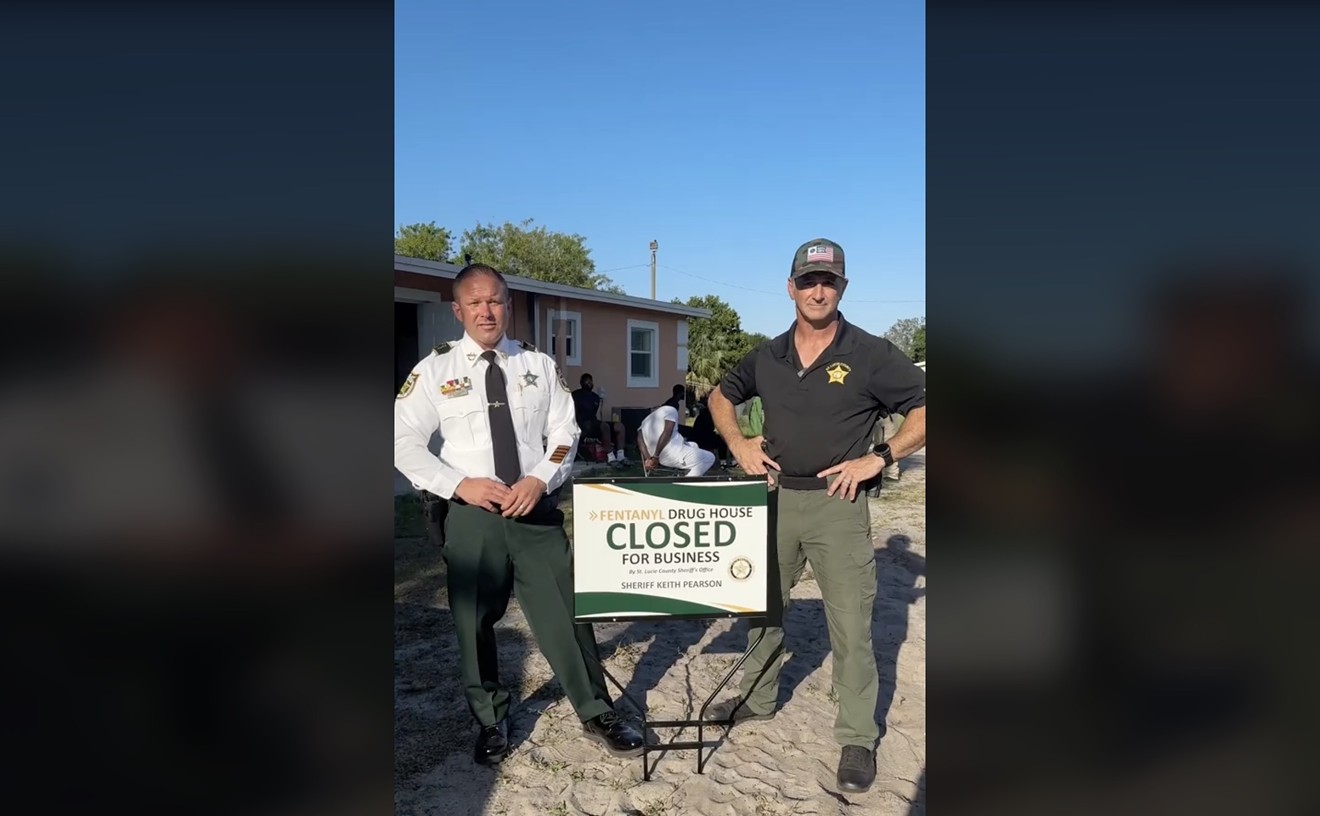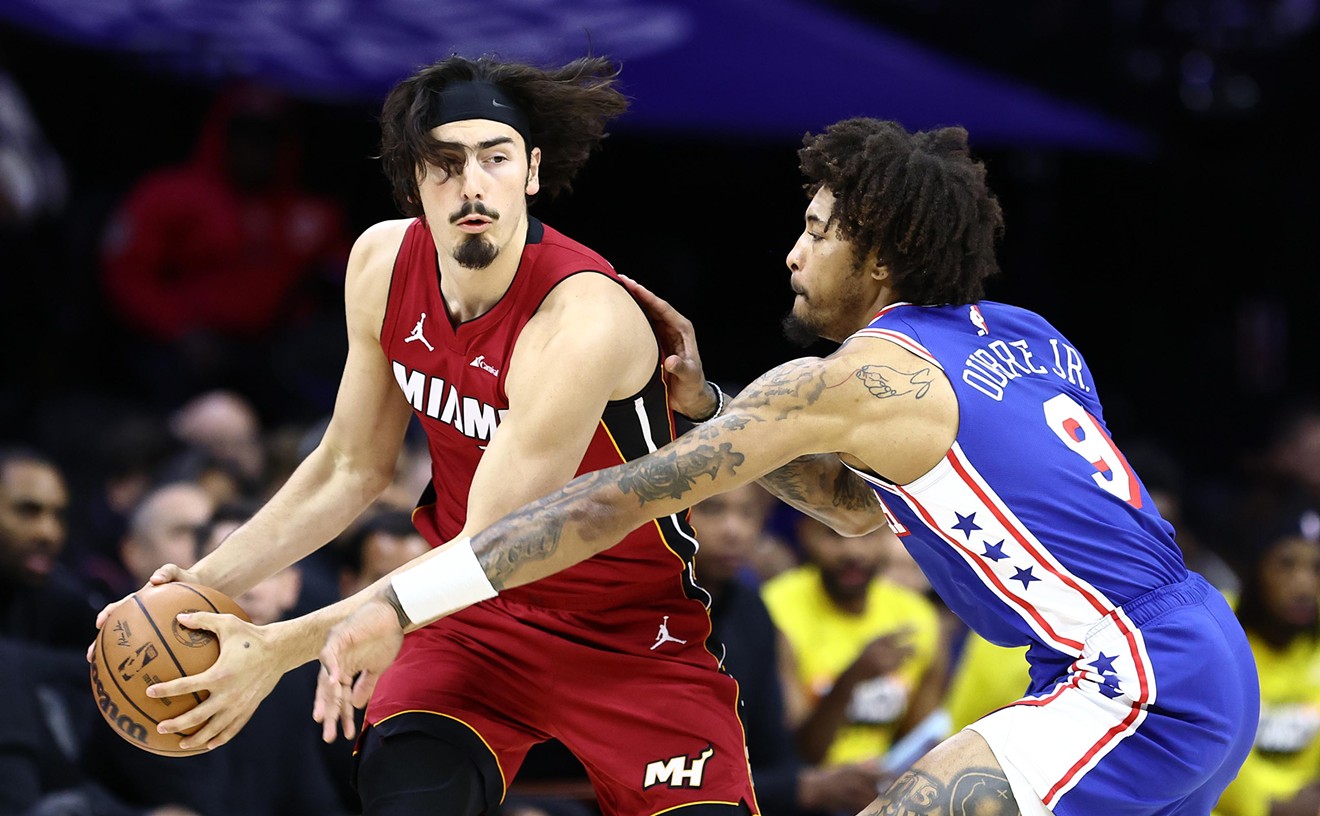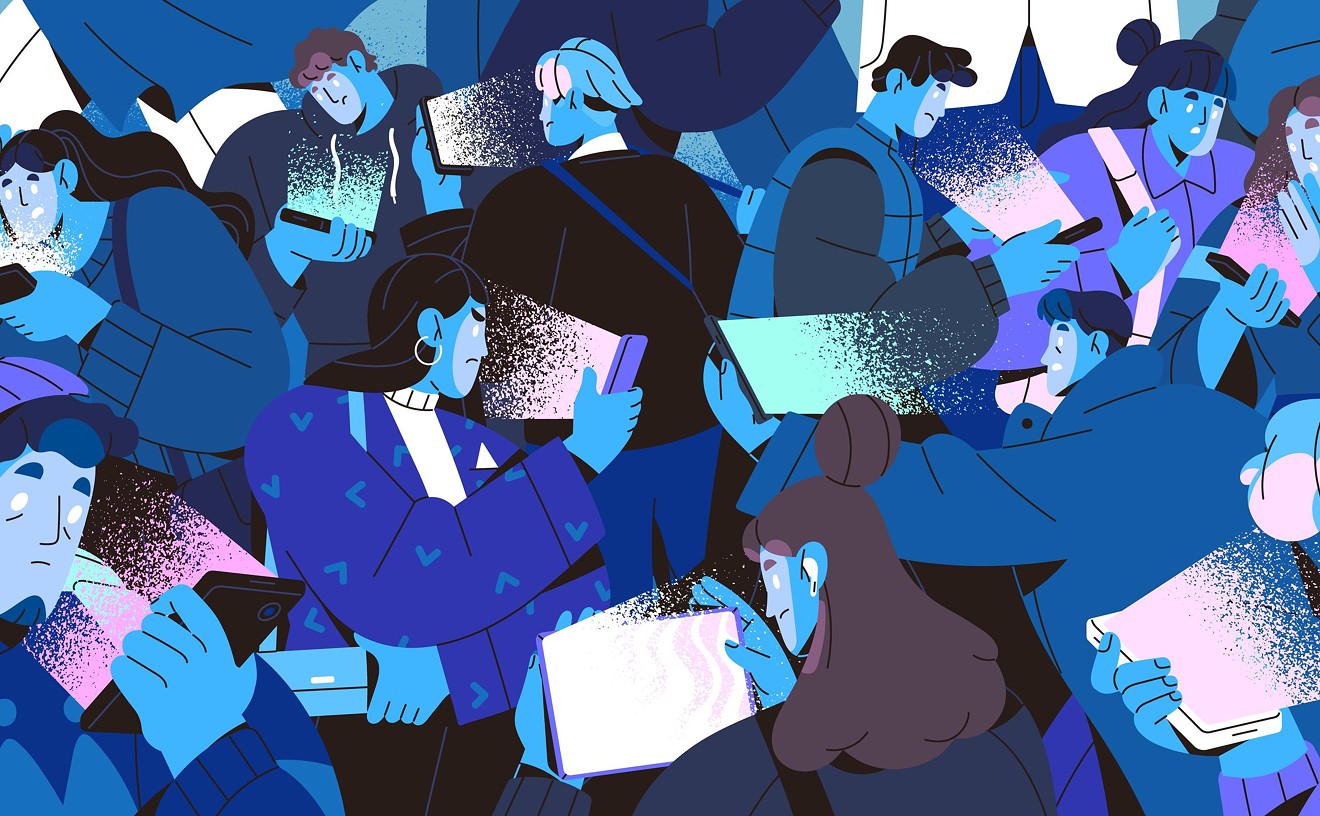It was 4 a.m. when two cops galloped up the stairs of the quiet Kendall home, turned left, and burst into the boys' room. One was a monster, a tall blond officer in cargo jeans, a T-shirt, and boots. His partner was a smaller African-American.
Bosco Enriquez, a gawky 15-year-old, was dead asleep. So was his 13-year-old brother, Oscar. The boys immediately heard their mom, Maria, sobbing. They sat up.
"Do you know why we're here?" the monster barked.
"No idea," Bosco replied. "I have no idea who you are."
"We're from Hialeah and we are charging you with aggravated battery. We have video."
Before the boys could dab the sleep from their eyes, Bosco's hands were cuffed behind his back and he was led outside to a patrol car.
That was 16 years ago. Charges were filed and then quickly dropped. The grainy video, which showed an anonymous beatdown at a 7-Eleven, was mysteriously damaged and cops acknowledged the 15-year-old hadn't been in Hialeah that night. But Bosco was a member of one of the nation's most infamous gangs, the International Posse, in an era when local cops were fighting a pitched battle for the soul of America's Hispanic youth.
"I decided to start working with police then," Bosco says now, over the phone from Nicaragua. "I decided to change my life. But they betrayed me. They all betrayed me."
It's hard today to recall America's era of Latin-gang mayhem. A Florida grand jury report in the '90s showed that 5,000 young people, mostly under the age of 30, were members of about 60 gangs in Dade County. They were deeply involved in murder, burglary, drugs, drive-by shootings, and drug sales. "Large metropolitan or populated areas are threatened by recruitment of gang members and gang-related crime," concluded the report, which was submitted by Fred Pfeiffer, then senior judge of the state's Ninth Circuit.
Bosco Enriquez is among the most horrendous victims of the hysteria of that time. In the months after the 1996 raid on his family's Kendall home, he wore a wire and helped bring down some of the International Posse's most despicable leaders on drug charges. In exchange, there were no rewards or thank-yous. Rather, his ponytailed police handler — a maverick gang-detail veteran named Gadyaces Serralta — would release Bosco's name in court documents. The boy would be beaten almost to death with a baseball bat during a gang fight and his house shot up by angry gang members. Later, after kicking a drug habit he claims resulted from police carelessness, he was raped in federal custody and then exiled from his home in the United States to Nicaragua, a country he had barely known as an infant.
I have spent the past two months combing through mountains of dusty court files that document Enriquez's case, as well as the personnel file of Serralta, the officer who recruited the boy. The result is an outrage. Local educators and police, as well as federal immigration authorities, failed this kid. Cops both in Miami and across the nation need more oversight when they use children to snitch. The current system stinks.
"My brother is the smartest guy I have always known, and he always protected me from everything," little brother Oscar says. "He just didn't deserve this."
Bosco Enriquez's story begins in Grenada, Nicaragua, an elegant, half-millennium-old city on Lake Nicaragua, during the early years of the Sandinista revolution. Bosco's dad, Oscar Sr., was a biologist who like many in the Central American country's educated classes, came into conflict with Daniel Ortega and his Sandinista hoodlum buddies.
So when Bosco was 4 years old and his brother a baby, the family escaped to Miami, first settling in Little Havana, then a mile north in Little Managua, and finally in the suburban tangle of West Kendall. Both parents found jobs, and the boys were well-behaved. Bosco worked hard at Bent Tree Elementary and scored straight A's.
"I was always a good student through sixth grade," Bosco recalls. "Honors programs, gifted programs, all that stuff. I had learned English myself at an early age. Everything came easy to me."
But when he entered Howard D. McMillan Middle, trouble began. Oscar Sr. became a phlebotomist working the night shift at Kendall Regional Medical Center. He left home at 6 p.m. and often didn't return until 8 a.m. the next day. Bosco's mom, Maria, cleaned houses in the morning and toiled as a department store cashier in the afternoon. The boys' 80-year-old grandmother, Josefa, tried to keep up.
The first sign of trouble came when Bosco was 12. He grabbed the keys to his grandma's Ford and attempted to drive to his girlfriend's house. But the kid could barely see over the dashboard and crashed into a Mobil gas station on Kendall Drive. The Ford was totaled, and Bosco was left trapped and bloody. Police pulled him out of the wreck, "but they didn't even ask for a license," Bosco recalls. "I got grounded."
Then he began getting into fights, soon earning the ire of a well-meaning principal and a police officer assigned to the school. Bosco was temporarily moved to an "opportunity school" called J.R.E. Lee that his parents and teachers hoped would straighten him out.
It didn't. He recalls walking down the street with a friend named Scott one day after school when a pickup truck packed with eight International Posse members pulled up. Bosco was 13 years old. "They came at us, surrounded us, and said, 'You in a gang?' I stood my ground and said no. Two had sticks, one a chain. Since I didn't run, they were impressed."
He bumped into the same group a few weeks later at Town & Country Mall, and a gang initiation followed. They walked outside to the parking lot behind a Dunkin' Donuts, where six guys jumped Bosco. "There were kicks, punches, grabbing me, slamming me on the floor, whatever they could do. Then time ran out and it was all hugs. We jumped in a truck and headed to Washington Avenue. My face and shirt were bloody, and I think I had a concussion, but I had passed."
Soon he began skipping school more often. His first bust came when he and a friend broke into Oliver Hoover Elementary School near SW 152nd Avenue and Kendall Drive. Bosco says the boys broke a window to escape some rain. He was 14. ("I was the youngest guy in INP," he says, still with a touch of pride.) The cops feared gang influence, so they brutally interrogated the kids, at first charging them with felony burglary. But eventually that was reduced to misdemeanor trespassing and Bosco received six months of probation. He was grounded again.
School at that point became an afterthought. He was again sent to the opportunity school after showing up drunk for PE class. Gang fights followed. The LBBs — Latin Bad Boys — were enemies who ruled an area in Miami north of Coconut Grove. So was TNS — Take No Shit — whose members hung near SW 122nd Avenue and Calle Ocho.
One time, Bosco barely escaped a horrible beating at Allapattah's Triangle Park when cops showed up at just the right moment.
Perhaps the most difficult moment of his young life came when gang members deserted him in a park off Douglas Road in Miami. A car full of International Posse members had started a fight with a group of LBBs and then became overwhelmed. Fifteen or so of the boys took off, leaving Bosco and a few friends outnumbered and outgunned in a parking lot behind a Farm Stores drive-thru.
Suddenly the end of a baseball bat slammed into Bosco's nose, which was left hanging by a shred of skin. "There was a hole the size of a quarter in my nose. I was knocked cold. When I came to, a girl was holding me while I was having convulsions," Bosco recalls. He was rushed to Coral Gables Hospital, where a surgeon reconnected the flesh and saved his life. "He said he rebuilt my nose like a jigsaw puzzle."
Then came the Hialeah police raid on his parents' house, the mysteriously flawed videotape, and the dropped charges. Bosco concluded he had to leave INP because clearly one of his fellow gangbangers had turned him in. How long would it be before they killed him — or maybe a member of his family?
Maria and Oscar Sr. had watched their son's problems balloon and wondered how to deal with their new home in the States and this unexpected behavior. The three sat down in the family's living room. "I want to get out," Bosco told them. "I guess I have to call the police."
He had met Gaddy Serralta at the Town & Country Mall, where the officer sometimes visited and introduced himself. So Bosco called Metro-Dade police and asked for Serralta by name. A few days later, the gang-detail leader — a tall, slender man with a big nose and a long ponytail — showed up in jeans and a T-shirt at the Enriquez home. He was accompanied by his partner, nicknamed Pit Bull, a more muscular man with head-to-toe tattoos.
"They sat down in my living room and I said, 'I need help to get out of this gang,'" Bosco remembers. "He said, 'We are gradually gonna get you away from these guys, and eventually they will just forget about you... but you have to help us first."
That's when Bosco Enriquez's painful odyssey through gang retribution and law-enforcement screwups — first local and then national — really began.











